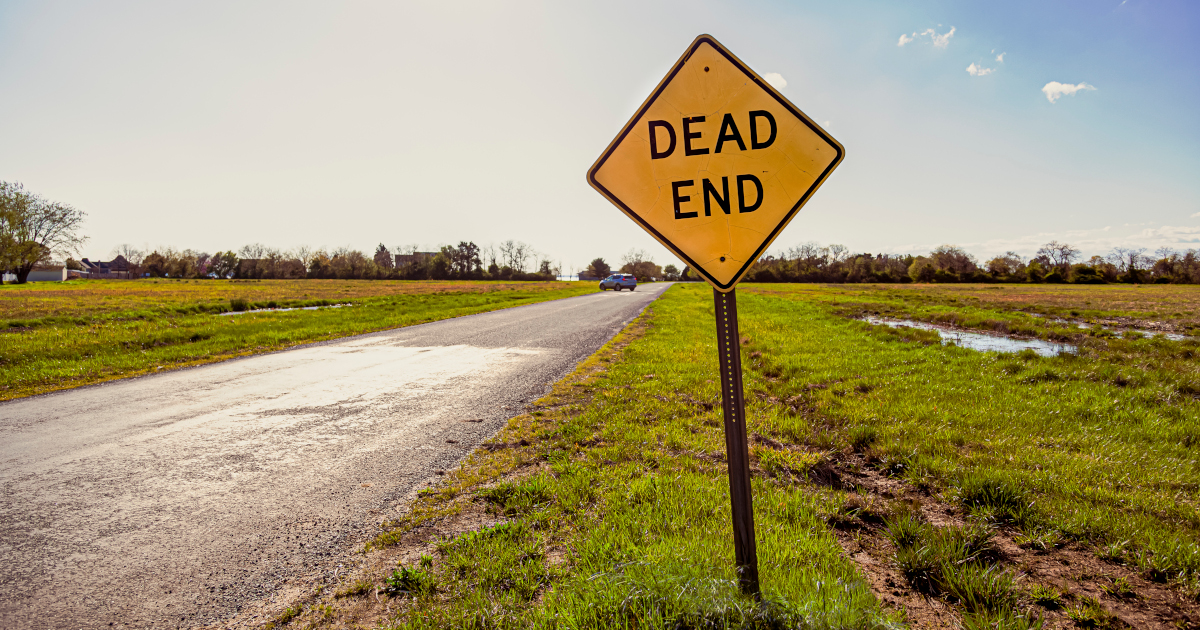
May 3, 2022 – The City of Brookfield committed an unconstitutional taking by conditioning its approval of a land split on the completion of a through street across a parcel located between two subdivisions, the Wisconsin Court of Appeals has ruled.
In Fassett v. City of Brookfield, 2021AP269 (April 20, 2022), the Court of Appeals District II held that the city failed to show that building the through street was closely related to a government interest.
Two Dead Ends
Bridget Fassett owns a 4.93-acre parcel located between two subdivisions in Brookfield. Each subdivision contains a street named Choctaw Trail, with both streets dead-ending near the middle of Fassett’s parcel.
 Jeff M. Brown is a legal writer for the State Bar of Wisconsin, Madison. He can be reached by
email or by phone at (608) 250-6126.
Jeff M. Brown is a legal writer for the State Bar of Wisconsin, Madison. He can be reached by
email or by phone at (608) 250-6126.
In January 2018, Fassett made a written request to the city to split the property into three single-family home lots and a wetlands plot dedicated to the city.
In her request, Fassett included maps of three conceptual plans. One plan would create a cul-de-sac at the eastern end of Choctaw Trail while leaving the dead end on the western end of Choctaw Trail.
The second plan would connect the two ends of Choctaw Street with a through-street. The third plan would build a shared driveway for two of the proposed single-family lots and leave the dead ends.
Fassett told the city that she preferred the third option. But the city’s planning commission recommended that the common council adopt the second plan, and in June 2018 the common council adopted the recommendation.
The common council made its approval of Fassett’s plans conditional upon her submitting a certified survey map (CSM), dedicating the through street, dedicating the wetlands plot, and executing a subdivision agreement.
Through Street Required
Later in 2019, Fassett submitted to the planning commission a preliminary survey map, a final CSM, and a subdivider agreement. She also requested that the city adopt the CSM without requiring her to build the through road.
The planning commission denied Fassett’s application and made findings of fact. In January 2020 the common council adopted those findings of fact and adopted the planning commission’s recommendation.
The city based its requirement that Fassett build a through street on the following:
it was anticipated that the end of Choctaw Trail would be connected when the subdivisions had been platted;
the municipal code specifies that dead-end streets and cul-de-sacs are to be kept to a minimum except where necessitated by topographical or environmental features;
shorter emergency response times and easier snowplowing;
reduced traffic on arterial and collector streets.
In February 2020, Fassett brought an action in Waukesha County Circuit Court, seeking certiorari review of the city’s denial of her application. She claimed that conditioning approval of her application on building the through street was an unconstitutional taking.
The city argued that Fassett’s lawsuit was untimely. But the circuit court granted Fassett’s motion for summary judgment and ordered the city to approve her application. The city appealed.
Petition Was Timel
Before the court of appeals, the city argued that the circuit court lacked jurisdiction over Fassett’s petition because she failed to appeal the city’s June 2018 approval of the through-street plan.
In her opinion for a three-judge panel, Judge Lisa Neubauer explained that Fassett’s petition was timely.
In O’Connor v. Buffalo County Board of Adjustment, 354 Wis. 2d 231, 847 N.W.2d. 881 (2014), the court of appeals held that requiring a party to seek certiorari review to appeal the denial of a conditional use permit (CUP) did not prevent a party from filing a second CUP.
The facts of Fassett’s case placed it squarely within O’Connor’s holding, Judge Neubauer noted.
“The City fails to identify any statute, ordinance, or case that prevents an applicant who first sought a determination of a proposed conceptual land split from submitting a second revised application for approval with a CSM and other supporting documents, such as the subdivider agreement,” Neubauer wrote.
Two-prong Test
Both the federal and state constitutions prohibit the taking of private property for public use without paying just compensation, Judge Neubauer noted.
Conditioning approval of Fassett’s application on building the through street was an unconstitutional taking, Judge Neubauer explained, because the city failed to prove by substantial evidence that it met a two-pronged test:
To demonstrate an essential nexus, Neubauer noted, U.S. Supreme Court precedent required the city to prove that it had a legitimate interest in the creation of the through street by showing that Fassett’s proposed development created the need for the street.
But building the street would only fix an already existing problem, Judge Neubauer explained – the fact that opposite ends of Choctaw Drive dead-ended in the middle of Fassett’s property.
“The condition was not created by Fassett’s subdivision proposal, but by the platting of the earlier subdivisions which the property abuts,” Judge Neubauer wrote.
No Negative Effects
The city argued that requiring Fassett to build the through street would shrink emergency response times and make snowplowing easier.
“However, the city did not tie these considerations to any impact caused by the proposed land split,” Judge Neubauer wrote.
Furthermore, the city didn’t show how Fassett’s proposed land division would create or exacerbate public problems or needs.
“There is no evidence that the proposed development would increase congestion, decrease safety, or hinder the adequate provision of transportation,” Judge Neubauer wrote.
“The City’s desire to improve current conditions for the public’s benefit, while laudable, is not sufficient to shift the cost of eliminating the dead ends to Fassett.”
The city’s failure to identify any negative effects of Fassett’s proposed development meant that it failed to meet the second prong of the test, Judge Neubauer explained.
“It therefore follows that there can be no rough proportionality vis-à-vis the through-street condition,” Neubauer wrote.
